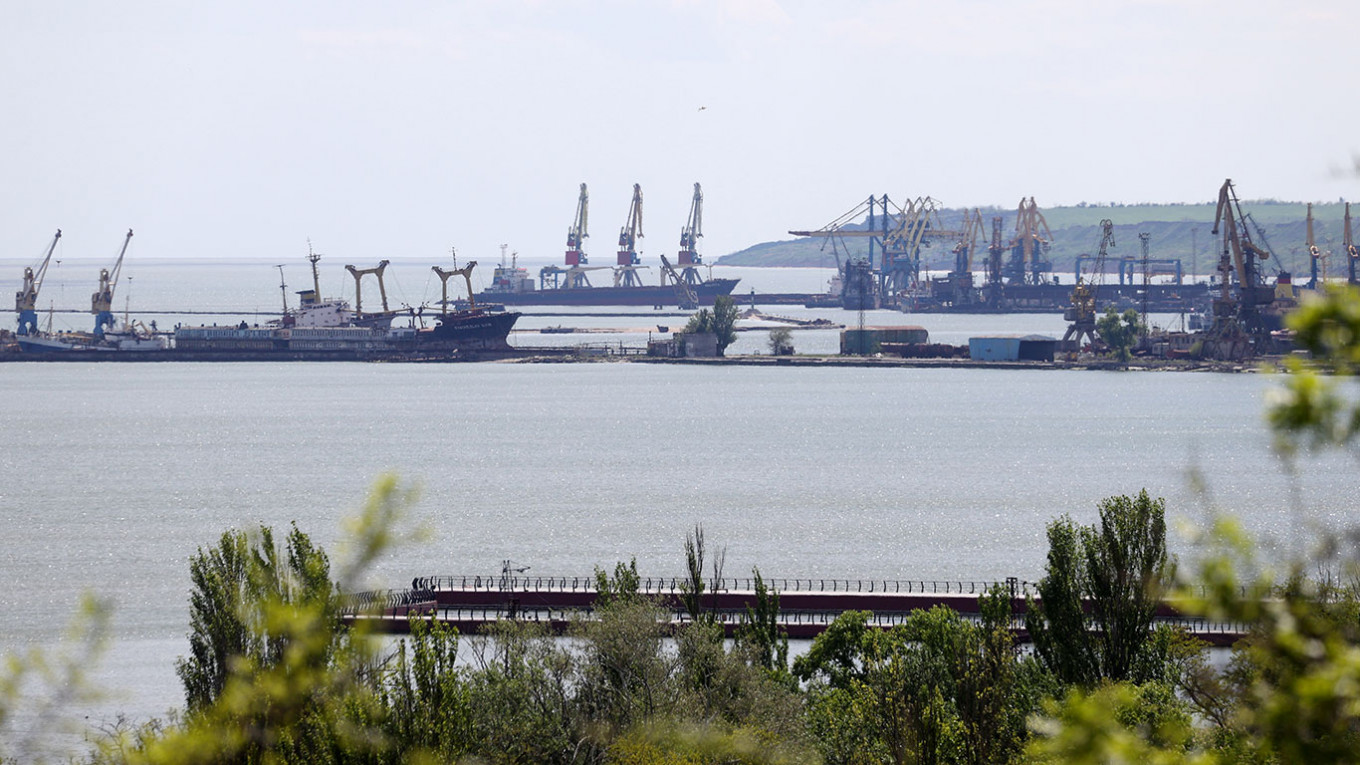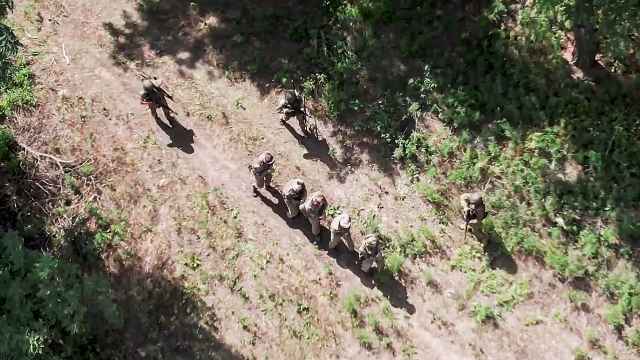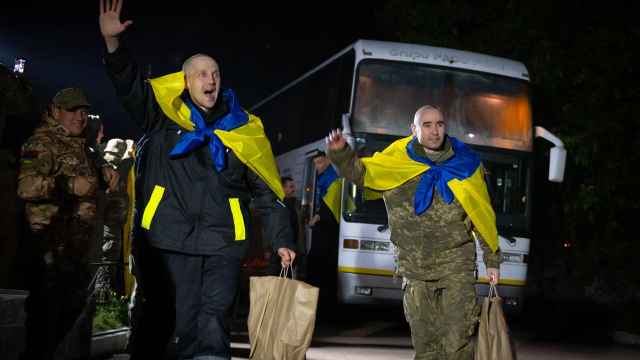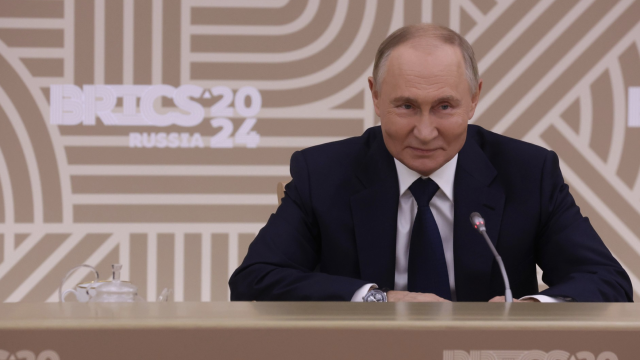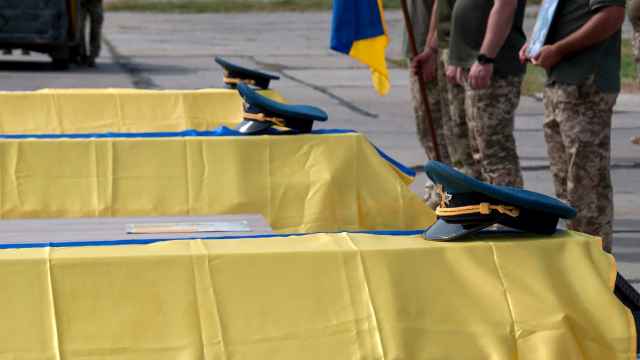Fears over global food shortages as the Ukraine war grinds on are spurring calls for a safe corridor for ships to exit the Black Sea, but the logistics are daunting and would need Russian cooperation.
Dozens of container ships are blocked in Ukrainian ports that are surrounded by Russian forces, choking off exports of wheat, sunflower oil and other foodstuffs, as well as fertilizer for crops.
That has already sent prices rising and the United Nations warns that millions of people are at risk of malnutrition or even famine.
"Stop blocking the ports in the Black Sea. Allow for the free flow of ships and trains and trucks carrying food out of Ukraine," U.S. Secretary of State Antony Blinken told a UN Security Council meeting on Thursday.
"About 400 million people throughout the world depend on grain supplies from Ukraine," Serhii Dvornyk, a member of Ukraine's mission to the UN, told the meeting.
"We demand that Russia stop illicit grain stealing, unblock Ukrainian seaports, restore freedom of navigation and allow trade ships to pass," he said.
Russia denies the claims, yet such assurances are not about to be tested by shipping firms hoping to get vessels to and from Ukraine.
A Western diplomatic source told AFP around 20 million tonnes of grain are currently blocked in Ukraine and trying to send out such quantities by truck or rail is not feasible.
Pressure on Putin
"In concertation with the UN, we are working to create a safe conduct for Ukrainian boats transporting grain," Turkish Foreign Minister Mevlut Cavusoglu said in New York on Wednesday.
Turkey is trying to act as a mediator with Russian President Vladimir Putin but Francois Heisbourg of the Paris-based Foundation for Strategic Research said broader support was needed for a UN resolution that would force Moscow to accept a naval corridor.
"The ones who should be pressing on the food blockade issue are the big importers in Asia (e.g. Indonesia), MENA (e.g. Egypt) and West Africa," he wrote on Thursday on Twitter, referring to the Middle East and North Africa.
James Stavridis, the U.S. Navy admiral who was NATO's Supreme Allied Commander in Europe from 2009 to 2013, said the solution could be escorted convoys as during Operation Earnest Will, which protected Gulf oil tankers during the Iran-Iraq war in the 1980s.
But in a strategic review published by Bloomberg this month, he acknowledged that Putin might insist on trying "to sever the Ukrainian economy from global markets."
"We'd need to have an agreement," the Western diplomat said.
'Could take weeks'
Even with an accord, protecting ships in the corridor from the mines placed by both Russian and Ukrainian forces could prove difficult and time-consuming.
"Currently there is very little maritime traffic in the Black Sea, in part because mines have been found," said Captain Eric Lavault, spokesman for the French Navy.
"We don't know the mine maps...It's not clear what's been done in Odesa so we'd have to send in an anti-mine force," he said.
"That could take days or even weeks. It's like building a road so that boats can get past each other, and zones for parking, and you have to clear all of them."
That would also require air and naval support since they would be operating in a war zone, regardless of whether or not they had a UN mandate.
And it remains uncertain if Ukraine would accept removing its mines from Odesa and other ports, even if Russian forces agreed to remove theirs.
"If any passage is arranged, it can then be used by the aggressive side," said Deniz Kutluk, a retired admiral of the Turkish Navy, which controls access to the Black Sea via the Bosporus under the 1936 Montreux Convention.
Ukrainian President Volodymyr Zelensky might first insist on receiving more advanced weapons for coastal defense from Western allies, raising the risk of further reprisals by Moscow.
And even if all the mines were cleared, "you can put mines back in very quickly," Lavault said.
"We don't know how much capacity they have left, but to drop in mines you just need a fishing boat and two metal poles and in one night the way is blocked."
A Message from The Moscow Times:
Dear readers,
We are facing unprecedented challenges. Russia's Prosecutor General's Office has designated The Moscow Times as an "undesirable" organization, criminalizing our work and putting our staff at risk of prosecution. This follows our earlier unjust labeling as a "foreign agent."
These actions are direct attempts to silence independent journalism in Russia. The authorities claim our work "discredits the decisions of the Russian leadership." We see things differently: we strive to provide accurate, unbiased reporting on Russia.
We, the journalists of The Moscow Times, refuse to be silenced. But to continue our work, we need your help.
Your support, no matter how small, makes a world of difference. If you can, please support us monthly starting from just $2. It's quick to set up, and every contribution makes a significant impact.
By supporting The Moscow Times, you're defending open, independent journalism in the face of repression. Thank you for standing with us.
Remind me later.


